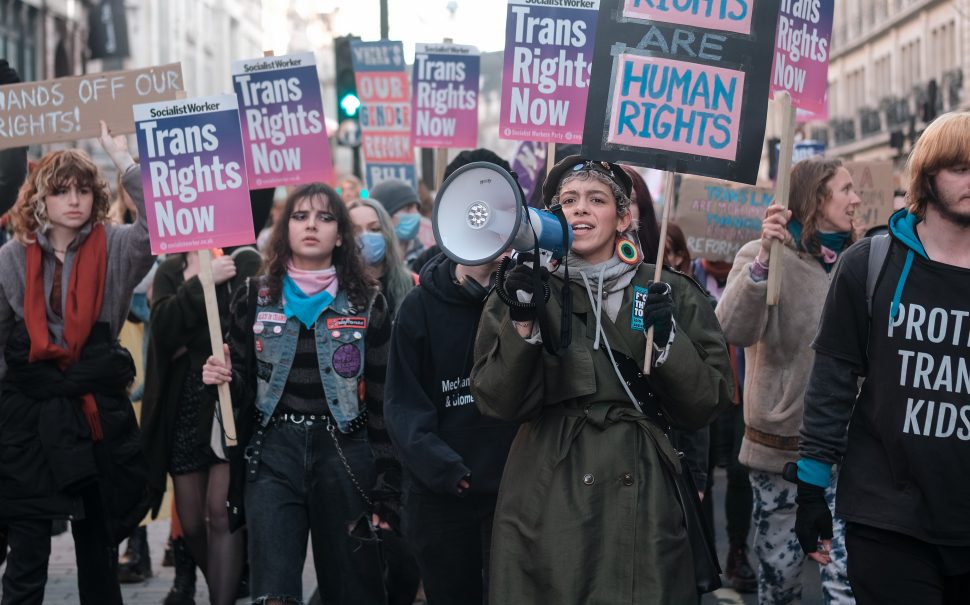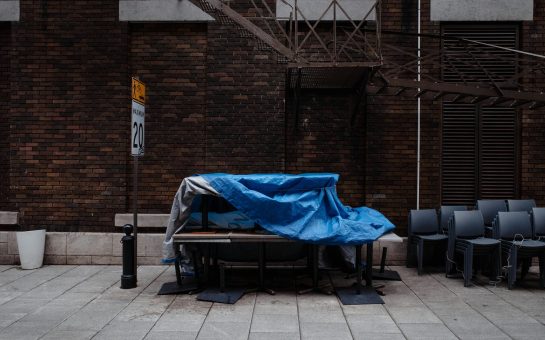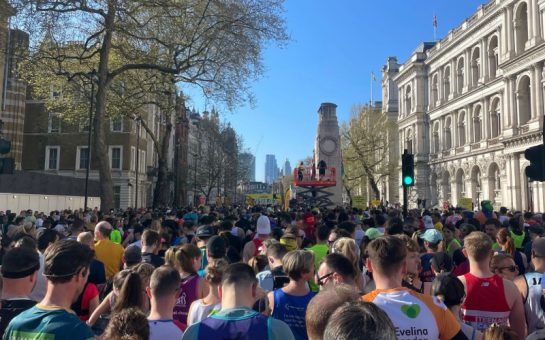Keir Starmer’s Labour Party won a landslide victory in the country’s general election last week, while the Conservatives suffered their worst ever result.
No surprises there, except perhaps among the party’s own strategists – who reportedly feared that voters’ sense of a foregone conclusion would depress turnout and wind up boosting the Tories’ seat count. Yet Labour secured its win on the lowest vote share of any single majority government in history and appeared to lose support among young progressives to parties that campaigned on more explicitly social justice-oriented platforms, like the Greens.
Alex Parnham-Cope weighed up voting Green before polling day. He believes that, as a trans man, the Labour Party didn’t actually want his vote.
He thinks that while Starmer has been backed into a corner by the Tories’ persistent waging of a culture war on trans rights, and left afraid of putting forward a more progressive message for fear of being “torn apart” in the right-wing media, the party went a step beyond what could be excused as careful campaigning.
“I couldn’t trust a Labour government [to deliver on trans rights], considering the party’s willingness to not simply engage culture war talking points, but actually advance them,” Alex, 24, explains.
Miles, a 22 year-old trans man who did not want to give his last name, feels similarly.
“I don’t see any hope in the Labour Party, especially seeing the ways they’ve treated transphobic MPs versus, say, MPs of colour,” he says.
Alex, meanwhile, says he’s trying to get the balance between catastrophising and gutter optimism.
“There is the sense that much of what [political parties] could do to make our lives tangibly harder has already been done, if not through explicit legislation then as an outcome of austerity,” Alex explains.
The new Health Secretary Wes Streeting, for example, recently committed to implementing the recommendations of the Cass Review on gender-affirming care for minors.
The report was criticised by organisations including the World Professional Association for Transgender Health and Amnesty International.

But as disappointing and anxiety-inducing as such a policy of further delaying healthcare may be for younger trans people and their families, the reality is that gender-affirming care has already been “effectively privatised” in the UK due to years-long waiting lists, he says.
“The other kernel of optimism, which is a very depressing kind of optimism, is the fact that because Labour has so matched the energy of the Conservatives in terms of their willingness to punch down on trans people as the minority of choice this electoral cycle, there’s been a race to the bottom in the culture wars,” Alex adds, which has “fast-tracked the transphobic culture wars to their logical conclusion”.
Steph Richards, the CEO of non-partisan trans advocacy organisation Translucent and a Labour campaigner, echoes Alex in saying she thinks the party is stuck “between a rock and a hard place” – but feels disappointed by some members of the trans community’s response to Labour.
She acknowledges that there’s still work to do inside the Labour Party, particularly on the issue of gender self-identification and single-sex hospital wards. In her view, however, a Labour government offers something the Tories never did: the opportunity to engage in good faith.
“[Labour is] not going to be perfect. [But] groups like Sex Matters will lose a lot of their venom, for a time. They’ll still have influence, but less than they had with the Tories,” she says.
“Where we are today, compared to three months ago, is in a hell of a better position. We were all screaming for a general election, seeing our rights risk disappearing in front of our very eyes, and that’s all disappeared. The Equality Act isn’t going to be changed. The Gender Recognition Act is going to be reformed – perhaps not to the extent we wanted, but it is going to be reformed. We’re going to see the end of culture wars. We’re going to see conversion therapy banned. That’s all got to be a good thing, ultimately.
“Perfect? No. Better? Yes.”
For Alex, though, “better” means little considering just how far the UK has regressed in recent years when it comes to trans rights.
He points out that Theresa May planned to reform the Gender Recognition Act to allow an element of self-identification back when she was Prime Minister in 2017.
“She was by no means being progressive on that, or being a flag-waving ally – simply reflecting the broad, largely bureaucratic international consensus on trans rights, before the contemporary campaign to roll them back in the UK and US began,” he says.
Miles shares Alex’s frustration.
“Trans rights are no longer seen as representative of cultural progress.
“It seems mad to me that one can see the rights of a group being stripped back and not think that it will eventually – or rather, as it already is doing – seep into class politics, gender-based discrimination, systemic and interpersonal racial violence, and perpetual undercurrents of ableism”, he says.
It remains to be seen what Labour in power will mean for Britain’s embattled trans community. No announcements have been made about the specificities of the new Minister for Women and Equalities’ brief, a role now shared by Anneliese Dodds and Bridget Phillipson. But many are not holding their breath.
The Labour Party did not respond to requests for comment.
Photo credit: Alisdare Hickson via Wikimedia Commons. CC BY-SA 2.0





